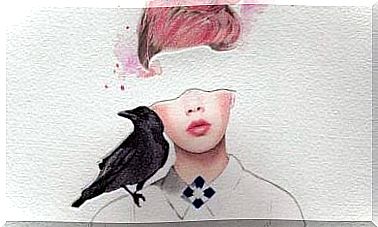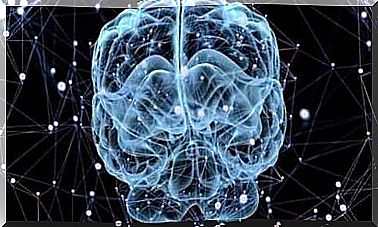Irritability Also Indicates Depression

Indicative of depression is not only the continuous and intense sadness or, rather, the hopeless, discouraged or “like in a well” state of mind . Sadness is a symptom that may not even manifest itself in a depressed person: its close relative is irritability.
Yes. Strange as it may seem, a depressed person may not appear sad, but show irritability, instability, or frustration. Somatic problems, moodiness, ailments, physical pain, emotional roller coaster, etc. All of this can replace sadness as a symptom of an emotional problem such as depression.
We could therefore say that manifestations of anger such as insensitivity, irritability, aggression and an “authoritarian” attitude are sometimes cries for help from the dark well in which depression drowns us.

Irritability as a diagnostic criterion for depression
According to the criteria of the latest version (DSM-5) of the Diagnostic Manual of Mental Disorders and the International Classification of Diseases (ICD-10), a clinical diagnosis of depression can be made if the person, among other conditions, exhibits irritability instead of sadness.
This means that if a person is constantly in a bad mood, exhibits persistent anger, a tendency to approach events with outbursts or insulting others, or an exaggerated feeling of frustration over things of no importance, then they may have fallen into one. pathological depressive mood.
In children and adolescents it can present itself as an irritable or unstable mood, rather than sadness and despondency. It must be differentiated from what is considered the model of the “spoiled child” with irritability in the face of frustrations.
Nevertheless, it must be emphasized that, just as sadness alone is not a sufficient criterion to indicate depression and needs further connotations to be considered pathological, the same happens with irritability.
Sadness and irritability are emotions that are unfairly treated
Sadness and irritability in themselves are healthy emotional conditions : in fact they have the function of warning us of something that bothers us and harms us. They become pathological only when they distort our life and enormously deteriorate our personal, social and working spheres for a long time.
With irritability, we usually have to be careful, because under its effects, we can do anything, regardless of something bad might happen. Thus, a persistent condition imbued with this classic instability can lead to something destructive.
Losing your temper easily, making unpleasant comments, being poor tolerant, showing impatience, feeling nervous, agitated, having unseemly relationships, starting to distance yourself from certain people for being unpleasant, etc. All of this is indicative of something in our life that is not working and to which we need to find a solution.

The anger or irritability that occurs when we suffer from depression is a way of expressing what one feels and does not express. Let’s say that the depressed person has the feeling of being oppressed, of wearing a scarf that weighs tons around the neck.
This makes her feel on the ground, feel that her vitality fades and that scarf does not let her walk, numbing her life and unbalancing her soul. This helps to realize the instability and difficulty these people have in carrying out their daily activities.
Thus, with the little strength that this dark scarf leaves them, they can barely eat anything and sleep.









